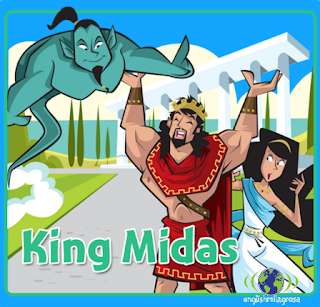Hello Everyone!!!
Here below, you can read an explanation to form superlative adjectives in English language.
We use the superlative form of adjectives to compare one person or thing with many others of the type. We use "the" or "a possessive adjective" before the superlative.
Examples
This is the newest robot in the shop.
This is your worst gadget.
Let's have a glance at the following spelling rules:
SHORT ADJECTIVES
1. There are adjectives one or two syllables. So, we have to add "-est" to the adjective to form the superlative
warm ---> the warmest
cheap ---> the cheapest
2. Those adjectives that end in "-e", we just add "-st"
nice ---> the nicest
wide ---> the widest
3. For short adjectives that end in "-y", we take off "-y" and add "-iest"
happy ---> the happiest
angry ---> the angriest
4. For those adjectives that end in CONSONANT + VOWEL + CONSONANT
We double the last consonant, and then add "-est"
fat ---> the fattest
hot ---> the hottest
LONG ADJECTIVES
5. We use the word "most" before many adjectives that have two syllables.
modern ---> the most modern
and, before all adjectives that have three or more syllables we do the same.
difficult ---> the most difficult
extrange ---> the most extrange
6. We can use both forms of the superlative with some-two sylable adjectives.
simple ---> the simplest
the most simple
clever ---> the cleverest
the most clever
IRREGULAR ADJECTIVES
There are some irregulares adjectives that don't follow these spelling rules, you have to study by heart.
good ---> the best
bad ---> the worst
far ---> the farthest
the furthest
little ---> the least
We use the superlative form of adjectives to compare one person or thing with many others of the type. We use "the" or "a possessive adjective" before the superlative.
Examples
This is the newest robot in the shop.
This is your worst gadget.
Let's have a glance at the following spelling rules:
SHORT ADJECTIVES
1. There are adjectives one or two syllables. So, we have to add "-est" to the adjective to form the superlative
warm ---> the warmest
cheap ---> the cheapest
2. Those adjectives that end in "-e", we just add "-st"
nice ---> the nicest
wide ---> the widest
3. For short adjectives that end in "-y", we take off "-y" and add "-iest"
happy ---> the happiest
angry ---> the angriest
4. For those adjectives that end in CONSONANT + VOWEL + CONSONANT
We double the last consonant, and then add "-est"
fat ---> the fattest
hot ---> the hottest
LONG ADJECTIVES
5. We use the word "most" before many adjectives that have two syllables.
modern ---> the most modern
and, before all adjectives that have three or more syllables we do the same.
difficult ---> the most difficult
extrange ---> the most extrange
6. We can use both forms of the superlative with some-two sylable adjectives.
simple ---> the simplest
the most simple
clever ---> the cleverest
the most clever
IRREGULAR ADJECTIVES
There are some irregulares adjectives that don't follow these spelling rules, you have to study by heart.
good ---> the best
bad ---> the worst
far ---> the farthest
the furthest
little ---> the least
Now, it's time to practice the spelling rules with the next exercises.
Quiz 1
Quiz 2
Quiz 3
Quiz 4
Here below, there are some worksheets where you can form sentences using the superlative adjectives.
Click <<< H E R E >>>




























